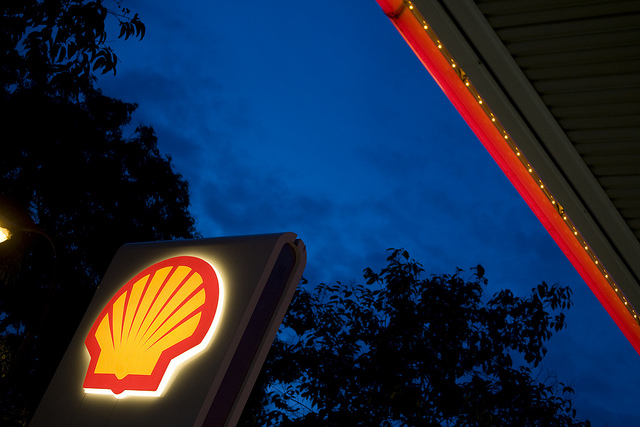Global O&G major Shell has unveiled an aim of becoming a net zero emissions energy business by 2050 “or sooner”.
Announced today (16 March), at the company’s now annual Responsible Investment Briefing, this target covers scope one and two emissions, along with a commitment to reduce scope three emissions. However details on how exactly emissions reductions would take place at all levels were lacking.
Scope three emissions, those created through the use of products, have long been a bone of contention for O&G companies. As they have increasingly looked to reduce emissions, many have failed to take into account any emissions created by their products after they have been sold.
This commitment to reduce scope three emissions is therefore likely to be welcomed, however there is limited detail with regards to how the company will achieve this.
In today’s Briefing, Shell stated that “customers can themselves take action on their emissions,” taking actions to mitigate emissions using both nature and carbon capture.
As part of this commitment, it has said it will “pivot to serving businesses and sectors” that have also committed to net zero by 2050.
This will include working to develop a method for tracking and reporting emission reduction by its customers, which will require “the development of appropriate accounting methodologies and frameworks”.
Within its own operations, Shell has adopted an ambition to be net zero on all the emissions from the manufacture of all of its products by 2050 at the latest.
Additionally, the company has committed to reducing the Net Carbon Footprint of the energy products it sells by around 65% by 2050. This is an increase from its current goal of 50%, with an interim goal of reducing them by around 30% by 2035, increased from its current goal of 20%.
A key part of this will be selling more low carbon intensity products, such as renewable power, biofuels and hydrogen it continued.
Shell has already made several moves in the clean energy sphere in recent years, acquiring electric vehicle charging company NewMotion in 2017. Then in February 2019, it made back-to-back investments, acquiring energy tech firm Limejump and battery manufacturer sonnen.
A month later, Shell rebranded its First Utility brand to Shell Energy, announcing it had switched all of its residential customers to 100% renewables– which garnered some criticism due to its reliance on Renewable Energy Guarantee of Origin certificates.
Lauding its position as the first international O&G company to set an ambition of reducing its Net Carbon Footprint of the energy products it sells, Shell today pointed to the unconditional three year target set in 2019 to reduce the footprint by 2% to 3% compared to 2016, linked to senior executive remuneration.
Its three year target out to 2022 is a 3% to 4% reduction, linked to remuneration for over 16,500 staff. It plans on setting this target annually, with each year’s target covering a three year period.
Shell will track and report on progress in achieving the reduction of the footprint, as well as progress towards achieving net zero emissions from its operations.
With today’s announcement of a 2050 or sooner net zero target, the company has quickly followed in the footsteps of fellow O&G major BP.
BP revealed in February 2020 it was going to “fundamentally re-organise” its business in a bid to become net zero by 2050 or sooner. This includes establishing a new low carbon power unit and doubling down on clean investments.
Shell is aiming, it said, for its future operating plans and budgets to change to reflect its new ambitions, with its current operating plans and budgets not reflecting this.
However, no more detail as to how its shift to being net zero by 2050 will be achieved has been given.
While the goal was welcomed by many as a step in the right direction for climate change, Richard George, head of Greenpeace UK’s climate campaign, criticised the continued commitment to drilling for oil and gas.
He continued: “investors are being fobbed off with vague aspirations that don’t tackle Shell’s monstrous carbon footprint and pass the buck to Shell’s customers to offset their emissions.
“This is not a Net Zero plan, it’s a plan to drive us deeper into climate emergency, which will continue to put lives and livelihoods at risk.”
Making reference to the current COVID-19 pandemic, Ben van Beurden, CEO of Shell, said that “even at this time of immediate challenge, we must also maintain the focus on the long term”.
“Society’s expectations have shifted quickly in the debate around climate change. Shell now needs to go further with our own ambitions, which is why we aim to be a net zero emissions energy business by 2050 or sooner. Society, and our customers, expect nothing less.”





